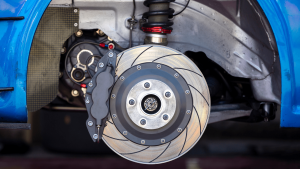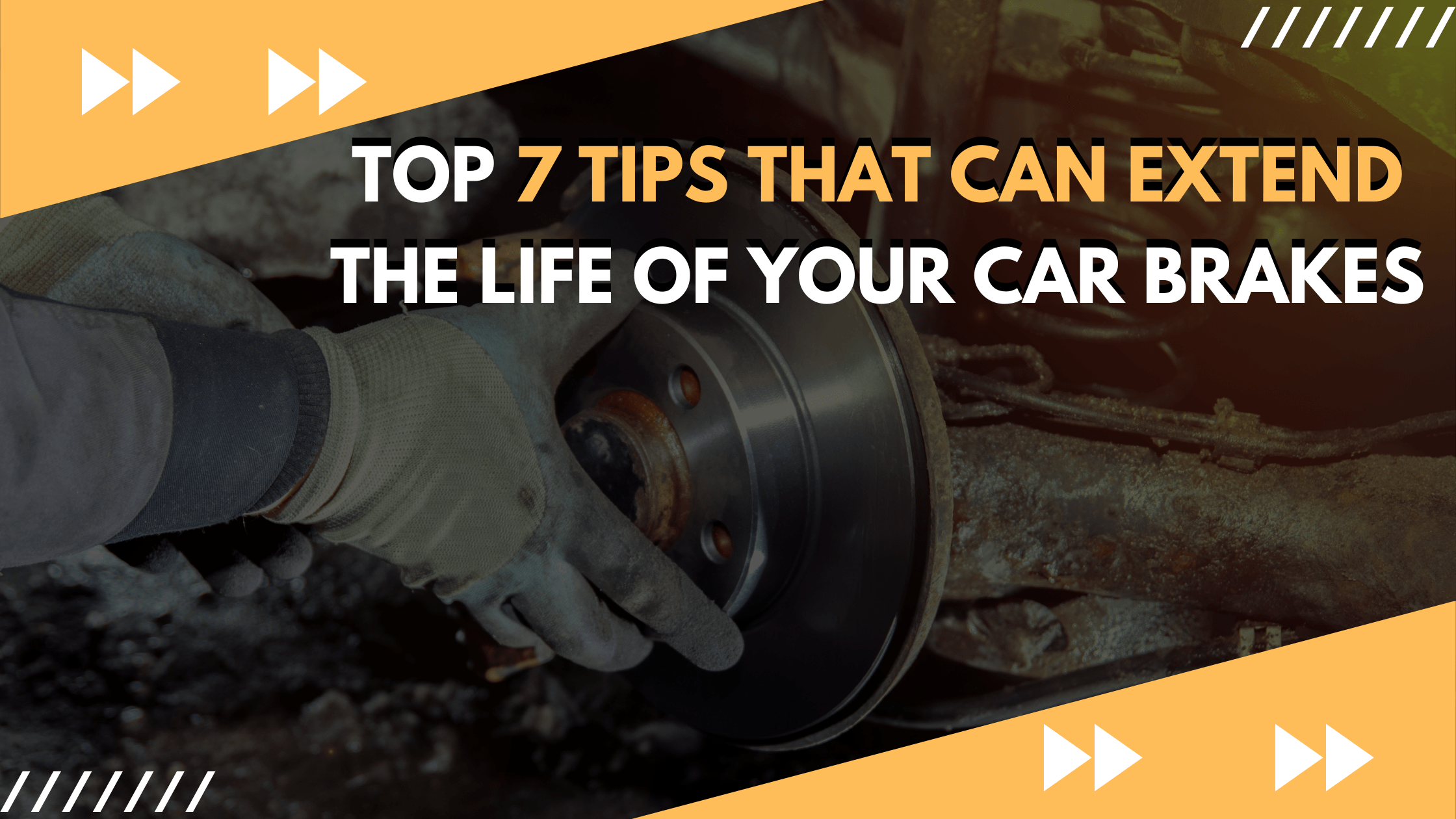Imagine you are on a road trip with your family, having the best time of your life, and suddenly you realise the car brakes are not working properly. Such situations can risk the life of your loved ones. When hitting the road, it is essential to ensure that the car brakes are in good working condition as the safety of our loved ones is our utmost priority. Keeping this in mind, make sure to get your car brakes service – brake pads changed, quality of tires checked, and other maintenance items in place every time you plan long road trips.
Bad car brakes can lead to dreadful road accidents! But many don’t realize that driving habits, brake pads, and temperature are some factors that influence the lifespan of car brakes. You won’t be able to keep your car’s brake components forever, but maintaining them well will extend their performance.
The lifespan of car brakes is generally between 25,000 to 65,000 miles. However, some car brakes lose their efficacy after 25,000 miles. Yet the lifespan of a brake widely differs from car to car and is governed by multiple factors. Even the frequency of applying a brake differs from place to place, such that a person living in an area with stop-and-go traffic uses the braking system more often than a person living in an area with little traffic.
A faulty brake system can put your safety on the road at risk, leading to severe problems and damage. Therefore, working brakes are mandatory to maintain safety on the road.
Oil changes and other servicing activities like brake inspections are also very essential. One must perform a brake inspection every six months. The quality of your brake pads and discs also plays a vital role in the long run.
To maintain the life of car tires, we check, balance, and align them regularly. Similarly, there are ways that you can use to prolong the life of your braking system. Let us quickly look at the seven tips to help you extend the life of your car brake.
7 Tips To Extend The Life Of Car Brake

Regular Brake Inspection
Take the help of an auto care service to check your car’s brake system every year. The professionals examine the lifespan of your car brake, check the brake pads and rotors, and replace the brake fluid and other objects which may cause damage to your vehicle.
Check your brake fluid levels every month and prevent them from running low. Low fluid levels can reduce the efficiency of the brakes and you can save some money if you replace your brake pads before they wear out and damage the brake disc.
You must instantly replace the brake once you hear the loud metallic grinding noises while driving. Furthermore, follow the specific maintenance schedule of your car to know when to perform the services.
Drive Slow
Slamming your car brake suddenly while driving at a top speed can cause more severe damage than anything else. The reason is simple – the higher kinetic energy of the vehicle leads to more wear and tear. This is because the brake pads absorb the heat during the braking process.
When driving at a low speed, the amount of heat generated is small, and it doesn’t cause much damage, which means the chances for the requirement of replacement are less. Hence, driving at a lower speed is more efficient, preventing your brake pads from wearing out faster.
Lose The Extra Weight
Loading excessive weight into your car will affect the brake pads. Having heavy equipment will add more pressure and burden on the car brakes. This will make the brakes perform more than usual to come to a stop. Therefore, carry only the essentials leaving behind the unnecessary things as it will make the brake performance easier.
Flush Your Brakes
Every two years, one must flush the brakes if they have an old car or have traveled a lot in it. Doing this will allow your car brakes to work more efficiently and prolong the life of its internal components.
Brake fluids are capable of naturally attracting water. And this can cause problems when applying repeated or emergency brakes. As the moisture boils, it reduces the brake’s effectiveness and can lead to internal corrosion. One can correct this problem by replacing rotors and brake pads.
One Foot Only
Many of us have witnessed cars accelerating with illuminated brake lights. A driver can achieve this by pressing the brake pedal with his left foot and the gas pedal with his right.
Some people believe pressing the brake and the accelerator using both feet will improve the response time. Nevertheless, it is not advisable for regular drivers as it puts continuous pressure on the brake, also known as brake riding.
In the long run, this can make the pads, and the rotor wear out faster. Ensure your left foot is on the ground while your right foot accelerates and brakes.
Try Engine Braking
Frequent brakes are applied while driving on a long steep hill or down a mountain. Try engine braking instead of pressing the brake pedal down in such situations.
During engine braking, the car slows down while shifting through the gears. Also, a manual transition is more effective than an automatic transition in cars. As the gear shifts, the engine decelerates, allowing your brakes to rest.
Widen the Gap
Maintain distance with other vehicles as much as possible because it helps you avoid pressing the brakes harder and reduces the brake wear out. During inclement weather or riskier driving conditions, increase your following distance.
You put too much pressure on the brakes when following a vehicle too closely. This also causes your brake system to wear out.
CONCLUSION
Driving carefully involves paying attention to the road ahead and also listening to how well your car works. The squeaks, chirps, and hums in your car brakes indicate a potential problem is approaching. The burning smell under the hood, the smell of smoke, or even the sensation of vibrations are all signs that something is wrong under the hood. One of your vehicle’s most crucial systems is its braking system. You will save a lot of money on costly brake repairs by maintaining your brake system and driving smartly, even in the best circumstances. In addition to improving your brakes’ longevity and fuel efficiency, these tips can also help you save a lot of money.
Also, Read – Everything You Need To Know About Car Clutch
